Is Snowboarding Hard To Learn? + 12 Tips For Beginners In 2025
Summit Skier contains affiliate links and is a member of the Amazon Services LLC Associates Program. If you make a purchase using one of these Amazon links, I may receive compensation at no extra cost to you. See my Disclosure Policy for more information.
Are you thinking about trying snowboarding this winter and asking yourself: Is snowboarding hard to learn? Snowboarding, like many other sports, takes patience and practice to progress. After all, every snowboarder once started as a beginner.
The sport of snowboarding has risen in popularity in the last few years and for good reason. It’s an excellent sport to do in the winter season, a great way to spend some time outdoors, awesome exercise, and a fantastic way to spend time with others.
As avid skiers and snowboarders, we believe that snowboarding is no harder to learn than any other sport. It just takes a good attitude, hours of practice, and a love for the snow.
Continue reading below as we uncover the frequently asked question: Is snowboarding hard to learn? Additionally, we will provide you all with some valuable tips for crushing it on the slopes as a beginner.
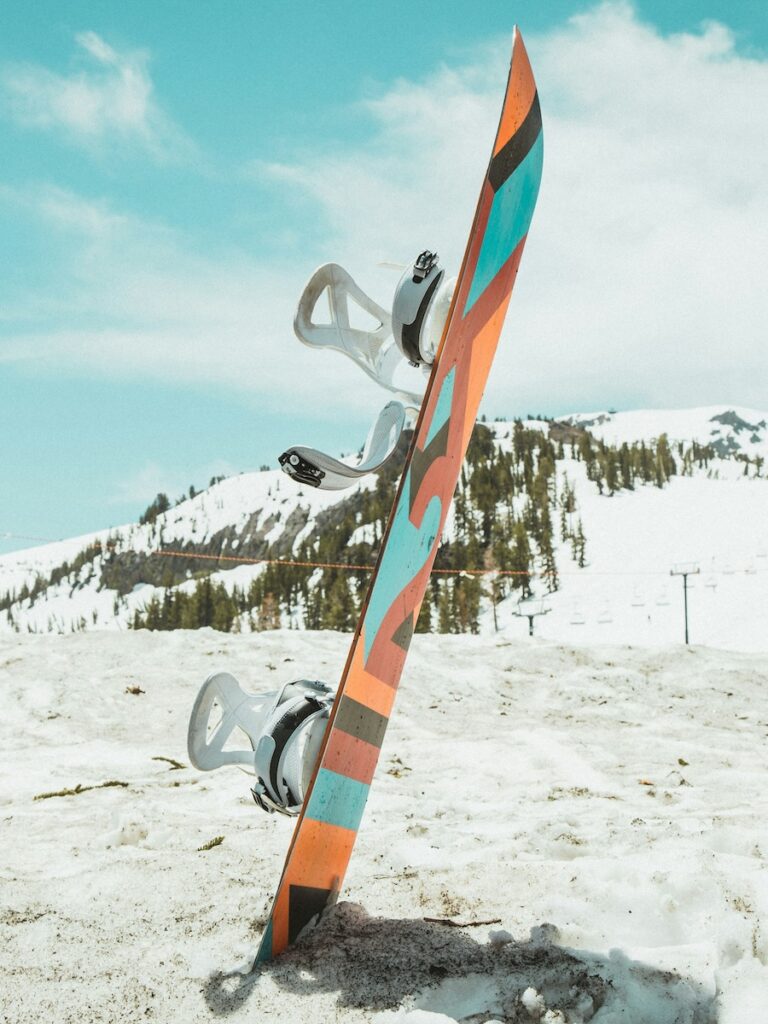
Is Snowboarding Hard To Learn?
Snowboarding, similar to all sports, can be challenging when you are just starting out and trying to understand the fundamentals.
However, advancing becomes easier with time as long as you are ready to invest hours in practice, stay committed, and maintain a positive mindset.
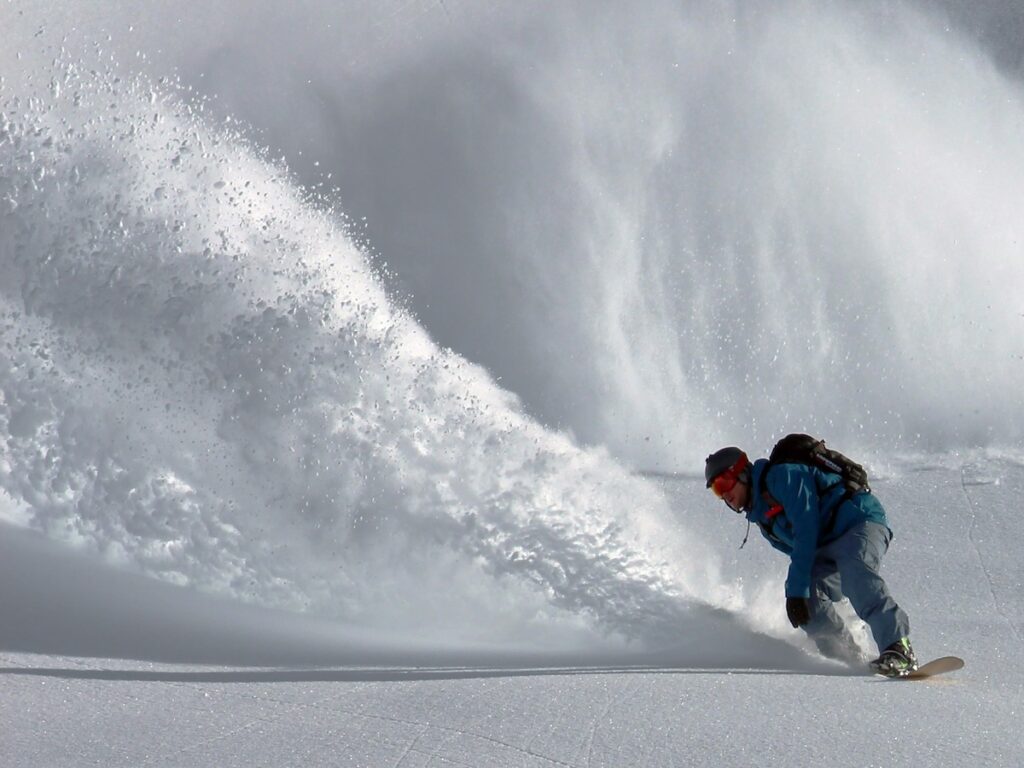
Is Snowboarding Hard To Learn: 12 Tips and Considerations For Beginners
Keep diving in below as I walk you through tips and considerations when learning how to snowboard.
1. Take Snowboarding Lessons
If you are looking for the quickest way to learn snowboarding basics and to hit the slopes on your own, we highly recommend taking snowboarding lessons at one of the best snowboarding resorts.
Taking lessons is one of the best ways to learn how to snowboard because you can learn from experts that possess a wealth of knowledge and years of experience. We recommend enrolling in snowboarding lessons at renowned resorts such as Vail, Snowbird, and Steamboat Springs, just to name a few.
These destinations are famous for their exceptional conditions and offer an incredible terrain that caters to both beginners and experts. These resorts not only boast breathtaking landscapes but also offer top-tier instructional programs, making them ideal for those new to skiing or snowboarding.
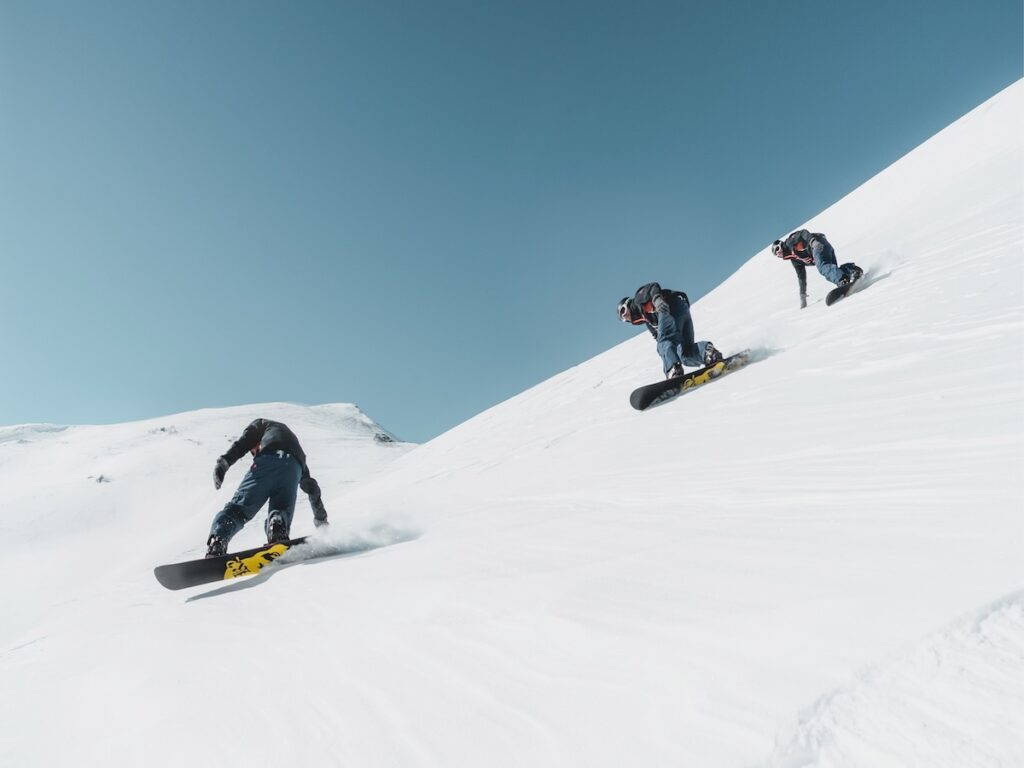
2. Make Sure To Wear A Helmet
When you begin learning to snowboard, you can expect numerous falls, often caused by icy terrain or not knowing how to slow down or turn. This is a prime example of how crucial it is to wear a helmet snowboarding.
As you progress in your snowboarding abilities, it’s important to continue to wear a helmet because it protects your head from injury if you fall or get into a collision. Wearing a helmet is always a wise decision when hitting the slopes regardless of your skill level.
Whether you want to wear a helmet with a visor, a helmet that comes with bluetooth and audio, or a simple helmet with no frills, wearing a helmet is critical to keeping your head safe while on the slopes.
3. Consider Purchasing A Ski Pass
For beginners in snowboarding, getting a season pass is a smart move. Learning to snowboard well takes multiple sessions, and having a season pass means you are committed to improving.
Also, on days when things don’t go as planned, you won’t feel like you have wasted a hundred dollars. With a season pass, it is perfectly fine to wrap up early and enjoy some après ski relaxation.
If you plan on visiting several different resorts during the ski season, consider purchasing the Epic or Ikon Pass that allows you to visit countless resorts across the United States.
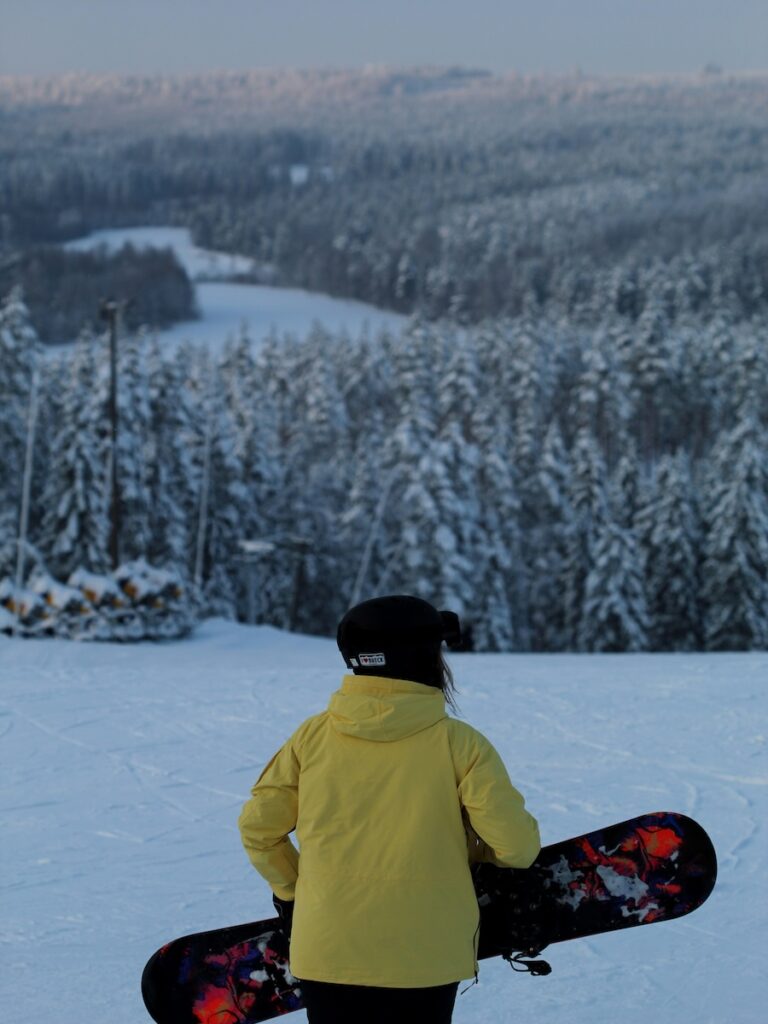
4. Sit Down While Strapping Into Your Board
The simplest and safest method to secure your snowboard bindings is by sitting down. This ensures that you are securely fastened in and minimizes the risk of slipping or falling, which can happen if you attempt to do it while standing.
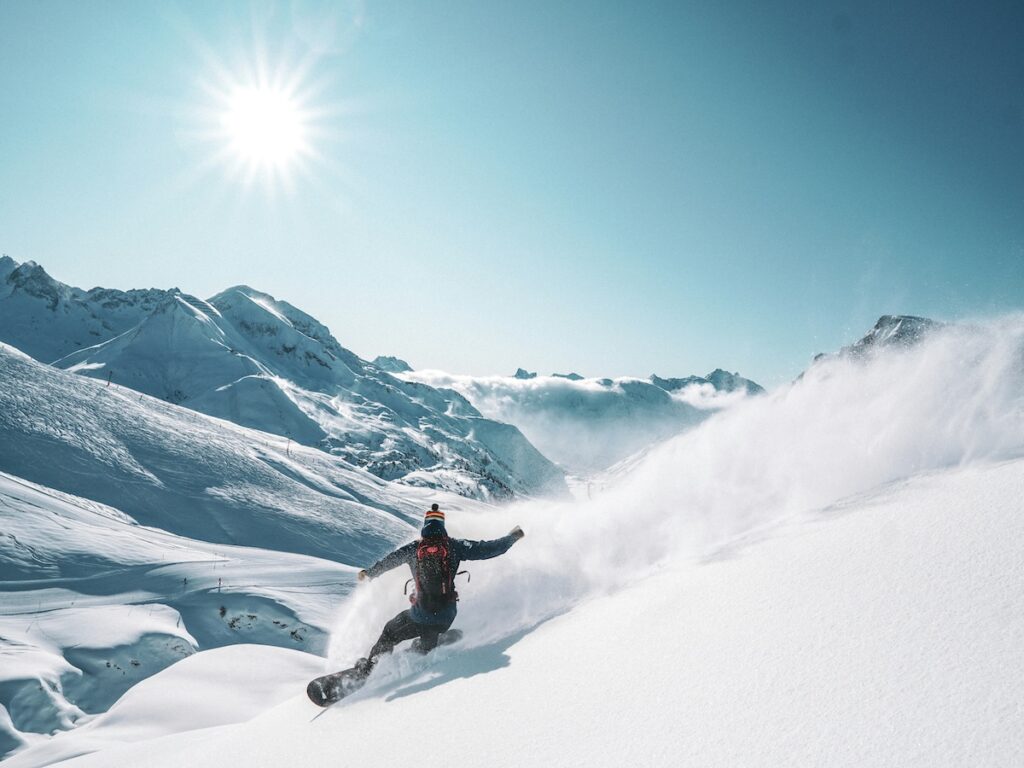
5. Make Sure Your Board Is The Correct Size
Making sure your board is the correct size is essential for maximizing your enjoyment on the slopes. It’s important to select the right size based on your height and weight to ensure smooth gliding.
If the board is too long, it becomes challenging to control, while a board that is too short may struggle to support your weight, causing you to fall behind.
6. Consider Purchasing Your Own Gear
Renting gear adds up over time, so it makes sense to invest in your equipment, which you can use for several seasons. Snowboarding can get expensive, so if you are really dedicated to learning, it is a good idea to go ahead and purchase your own gear.
Plus, owning your gear shows your commitment to learning the sport and keeps you motivated to keep trying until you master it.
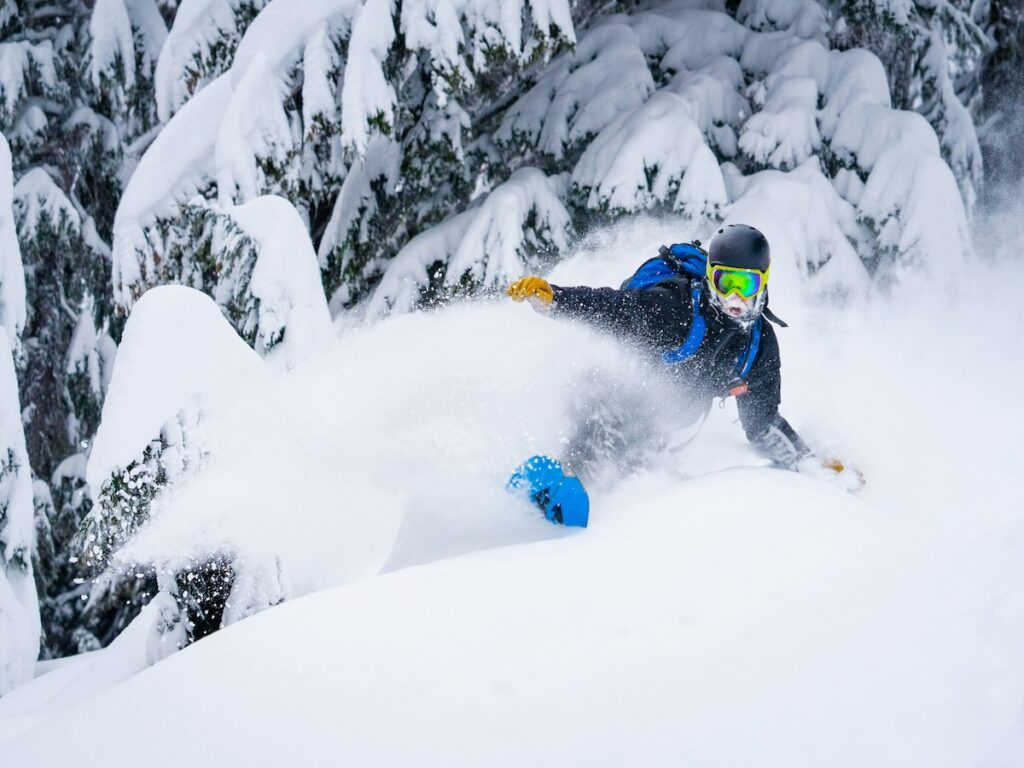
7. Be Sure To Stay Hydrated
Staying well-hydrated is essential to avoid muscle cramps and feeling lightheaded. When you are at higher altitudes, you tend to get dehydrated more quickly.
Plus, when you are learning how to snowboard, you are using muscles that you don’t commonly use. This means you are exerting more energy and sweat, causing you to become dehydrated quickly.
Staying hydrated is essential for staying healthy and energized. One of the best ways to stay hydrated while on the slopes is by wearing one of the best snowboarding backpacks that contains a water reservoir.
These packs were specifically designed for giving you easy access to your extra gear and water. Many of these packs come with an insulated straw on the outside of your pack so that you can easily drink water without having to pull out a water bottle.
8. Wear The Right Outfit
Picking the right clothes matters when learning how to snowboard. The weather can change rapidly while on the slopes.
Additionally, skiing conditions are typically cold and wet, so wearing waterproof warm gear can help you avoid getting sick and allows you to stay comfortable while on the slopes.
9. Be Patient
Trying something new can be tough, but once you get the hang of it, it becomes really enjoyable. Also, many people feel a bit down during the winter months. If you have something exciting to look forward to, like snowboarding, it can make the season much more fun.
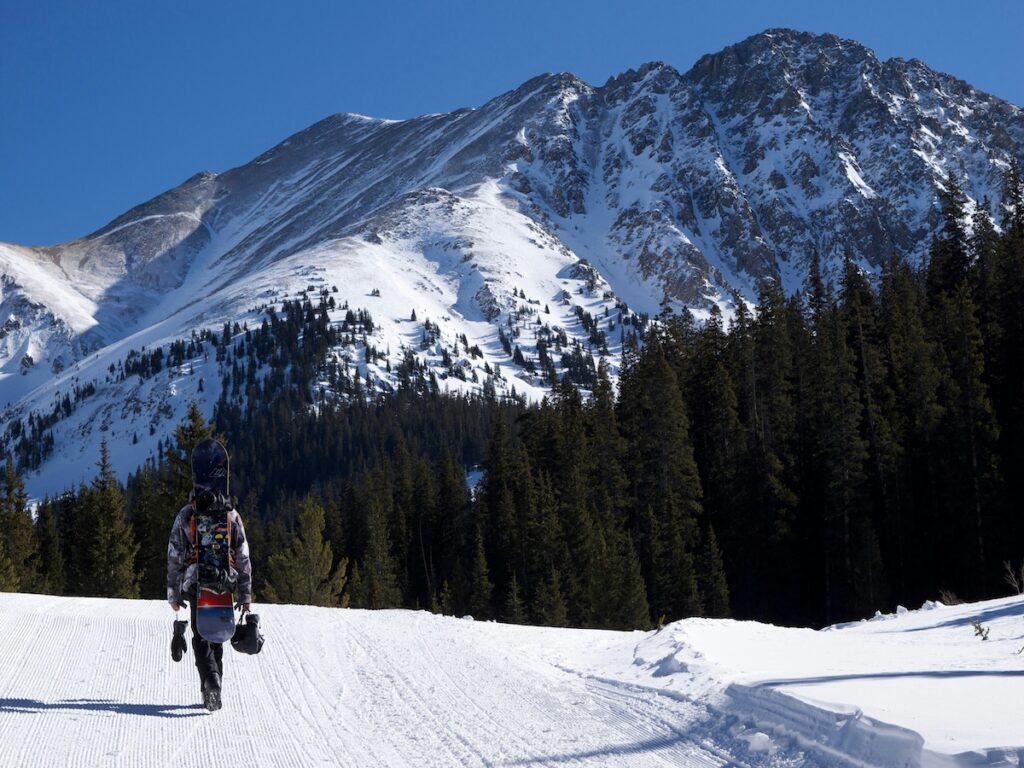
10. Start Out In The Practice Areas
Dedicated practice zones at ski resorts were designed for beginners. These areas feature gentle slopes that are perfect for those that are just starting out, enabling you to focus on the basic skills like carving and edging.
Practice zones offer a gradual incline, and everyone there is a beginner like you, creating a supportive and reassuring environment.
Attempting to learn on steeper, more challenging, slopes can be riskier for both you and fellow skiers and snowboarders.
11. Work On How You Fall
Even the most skilled riders experience falls. It’s one of the inevitable parts of skiing and snowboarding. Therefore, understanding how to avoid injury when falling is crucial for having a good time on the slopes and not getting hurt.
12. Wear Goggles
Wearing goggles can significantly enhance your snowboarding adventure. Whether it is to shield your eyes from snow, protect against the sun, or reduce the glare during night skiing, goggles are a versatile piece of gear that proves invaluable in various situations while skiing or snowboarding.
We strongly recommend you to wear a pair as you embark on your snowboarding joruney.
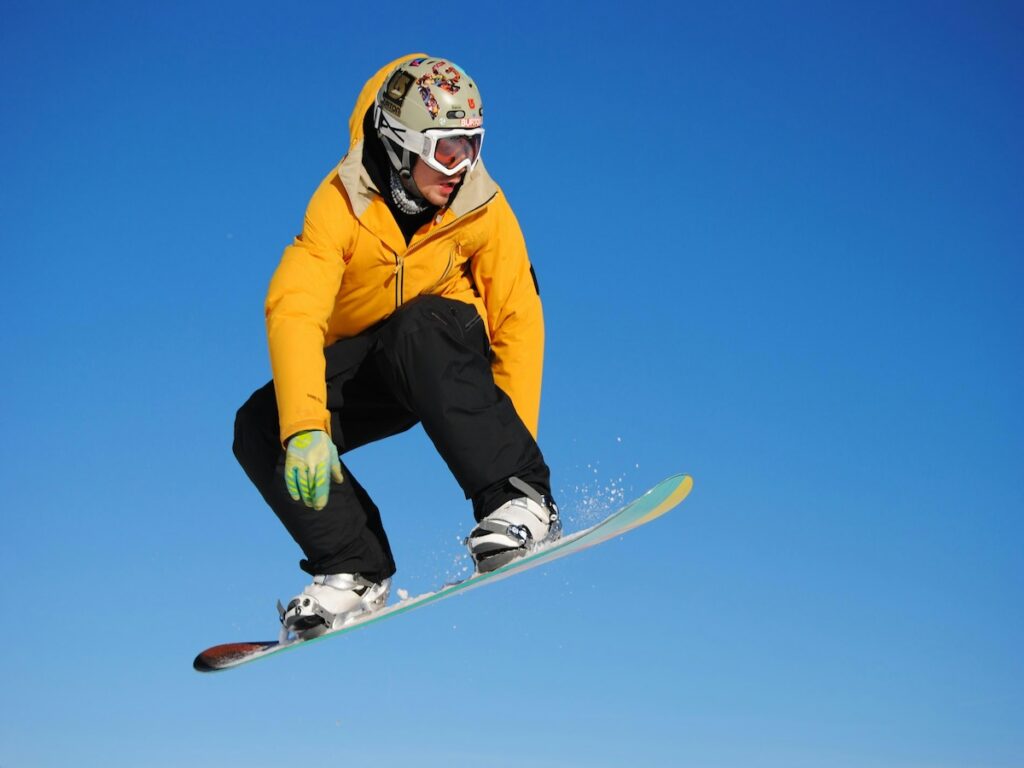
FAQs About: Is Snowboarding Hard To Learn?
Continue reading below as I answer a handful of questions about learning to snowboard.
What is harder skiing or snowboarding?
As avid skiers and snowboarders, we believe that learning how to ski or snowboard are equally challenging. However, many people tend to believe that snowboarding is harder to learn because you are going down the slopes sideways.
How many days does it take to learn how do you snowboard?
For most people, it typically takes 3-5 days to grasp the basics of snowboarding. With each visit to the slopes, you will notice a considerable improvement in your skills.
The more often you can make it to the slopes, the better. We suggest going multiple weekends in a row to keep your skills fresh and continually build upon what you are learning. This consistent practice will help you progress steadily.
Can snowboarding be self taught?
Snowboarding can definitely be self taught. In fact, that is how I learned to snowboard and I now can snowboard expert terrain and the backcountry.
How many hours do you need to learn snowboarding?
You will typically need at least 20-30 hours to learn how to snowboard. However, this can vary depending on the person as well as how athletic they are.
Is 20 too late to start snowboarding?
20 is not too late to start snowboarding. While picking up a new sport tends to be easier when you are younger, you can certainly start snowboarding at 20 and excel in the sport with dedication and hard work.
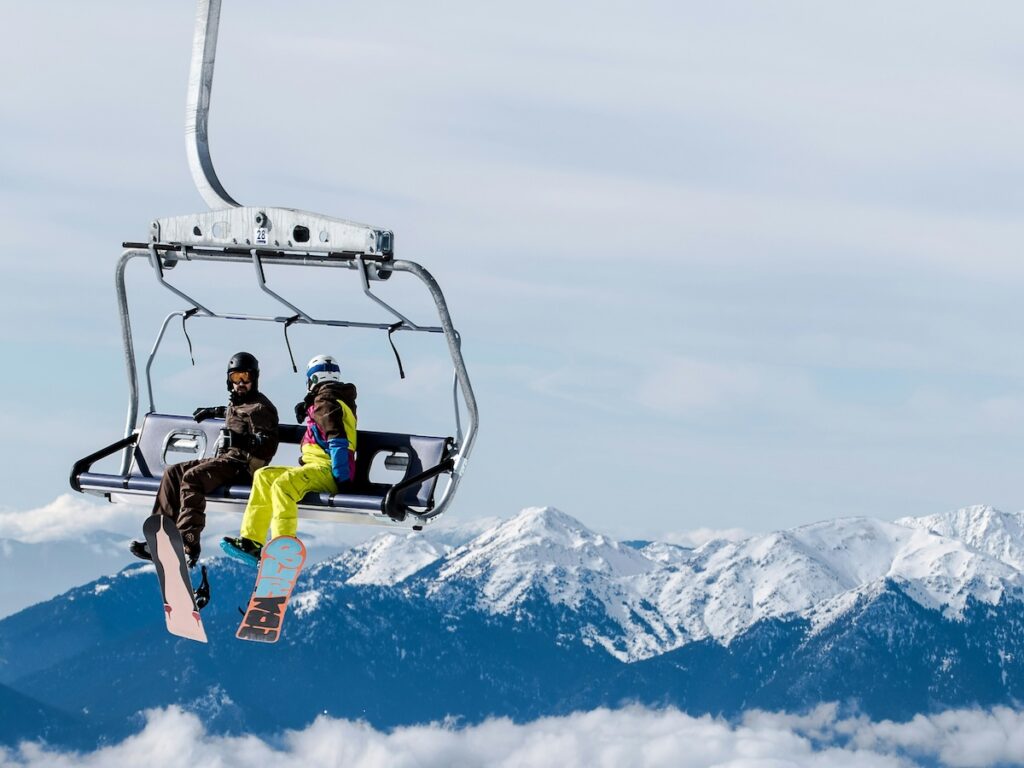
Final Thoughts: Is Snowboarding Hard To Learn?
In the beginning, snowboarding can seem like quite the challenge. However, as long as you are dedicated and put in the effort, progressing becomes much easier.
Snowboarding is an incredibly rewarding sport and definitely worth the effort. Remember the most crucial aspect is to have fun while on the slopes!